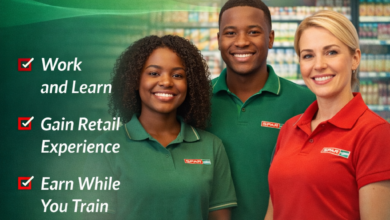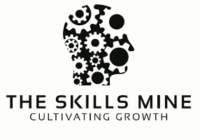SETA 2025 Learnership

Introduction: A Gateway to Skills and Income
The plastics manufacturing industry in South Africa is more than just a production line — it is a vital part of the national economy. From packaging and automotive parts to construction materials and healthcare supplies, plastics touch nearly every aspect of our lives. As the industry continues to grow, so does the demand for skilled workers.
For young South Africans eager to enter the workforce, the SETA Accredited Plastics Manufacturing Learnership offers a unique opportunity: earn R3500 per month while gaining real-world skills that employers value. With only a Grade 11 pass required, this programme makes technical careers more accessible and provides a pathway to long-term employment.
This article explores what the plastics learnership is all about, its requirements, benefits, and how to apply.
What Is a Plastics Manufacturing Learnership?
A learnership is a structured learning programme designed to help learners acquire both theoretical knowledge and practical workplace experience. In South Africa, learnerships are registered with the National Qualifications Framework (NQF) and overseen by Sector Education and Training Authorities (SETAs).
In the case of plastics manufacturing, the learnership focuses on developing core technical skills such as:
- Understanding different plastics materials.
- Operating and maintaining manufacturing machinery.
- Ensuring quality control in production.
- Following health and safety regulations.
At the end of the programme, participants graduate with an NQF-recognised qualification and hands-on experience — making them highly employable.
Understanding SETAs and Accreditation
SETA stands for Sector Education and Training Authority. There are 21 SETAs in South Africa, each responsible for training within a specific industry. The plastics manufacturing industry typically falls under the Chemical Industries Education and Training Authority (CHIETA).
Why accreditation matters:
- Accredited programmes meet strict quality standards.
- Learners receive nationally recognised qualifications.
- Employers know they are hiring skilled, certified workers.
This ensures that learners are not just trained, but job-ready.
The Plastics Sector: Opportunities and Growth
The plastics industry is an essential driver of the South African economy. It supports industries such as:
- Food and Beverage: Packaging solutions.
- Automotive: Interior and exterior components.
- Construction: Pipes, fittings, insulation materials.
- Healthcare: Medical equipment, sterile packaging.
With sustainability and recycling initiatives on the rise, new roles are emerging in green manufacturing and circular economy practices. This makes plastics a sector not only with current opportunities but also with a future-focused outlook.
Eligibility Criteria for the R3500pm Learnership
To ensure fairness and readiness, applicants must meet certain requirements.
Minimum Educational Qualification: Grade 11 or Higher
- A Grade 11 pass is the minimum requirement.
- Higher grades or additional certifications may give applicants an advantage.
Other Requirements
- Must be a South African citizen with a valid ID.
- Age: Typically between 18 and 35 years old.
- Unemployed candidates are usually prioritised.
- Physical fitness may be required, as factory work can be demanding.
- Basic communication and problem-solving skills are advantageous.
What to Expect in the Learnership
A plastics manufacturing learnership is not just about classroom learning. It’s an immersive journey that combines theory with practice.
Training Modules and Skill Development
Learners can expect to cover areas such as:
- Material Science: Types of plastics, properties, and uses.
- Manufacturing Techniques: Injection moulding, extrusion, blow moulding.
- Machine Operation: Setup, monitoring, and troubleshooting.
- Quality Assurance: Ensuring consistency and meeting industry standards.
- Health and Safety: Workplace safety practices and compliance.
Duration and Structure
- Programmes typically run for 12 to 24 months.
- Split between classroom sessions and factory-based training.
- Ends with a final assessment and qualification.
The R3500 Monthly Stipend and Benefits
One of the most attractive aspects of this learnership is the monthly stipend.
Understanding the Stipend
- Learners receive R3500 per month to cover transport, meals, and living expenses.
- While modest, it provides essential financial support during training.
- It ensures that learners can focus on their studies without worrying about survival costs.
Long-Term Benefits
- Many companies retain learners after completion.
- Skills gained can lead to promotions or specialised roles.
- Qualifications are transferable across multiple industries.
Career Paths After the Learnership
Graduates of the programme can pursue careers such as:
- Machine Operator: Running and maintaining production equipment.
- Quality Control Technician: Monitoring standards in product lines.
- Production Supervisor: Managing teams and workflow.
- Maintenance Technician: Ensuring machines are operational.
- Process Controller: Overseeing efficiency and safety in production.
With additional training, learners may progress into roles in engineering, design, or management.
How to Find and Apply for Plastics Manufacturing Learnerships
Where to Look
- Company Websites: Large plastics manufacturers often advertise opportunities.
- APPLICATION PROCESS
- SETAs (e.g., CHIETA): Official sites post accredited programmes.
- Government Platforms: The Department of Employment and Labour lists opportunities.
- Recruitment Agencies: Specialise in learnership placements.
- Industry Associations: Plastics SA and related groups may share learnerships.
Application Tips
- Prepare a strong CV highlighting your Grade 11 achievements.
- Write a clear cover letter explaining your interest in plastics manufacturing.
- Gather supporting documents (ID copy, school results, certificates).
- Practice for interviews by preparing answers about your goals and strengths.
Why This Learnership Is a Smart Choice
- Low entry barrier: Only Grade 11 required.
- Financial support: R3500 stipend during training.
- High demand: Plastics manufacturing is a growing industry.
- Future prospects: Skills are versatile and transferable.
- Accreditation: Ensures quality and recognition.
For many young South Africans, this programme could be the difference between struggling with unemployment and building a sustainable career.
Common Questions About the Learnership
1. Do learners get permanent jobs after the programme?
Not guaranteed, but many companies hire high-performing learners.
2. Is Grade 12 better than Grade 11 for applying?
Yes, but Grade 11 is sufficient to qualify.
3. Can older applicants apply?
Most programmes focus on 18–35-year-olds, though exceptions may exist.
4. Are there costs involved?
No tuition fees. Learners are paid instead of paying.
5. Is the stipend taxed?
Stipends may be subject to tax depending on SARS regulations.
Conclusion: Take the First Step Toward a Brighter Future
The SETA Accredited Plastics Manufacturing Learnership is more than just training — it is a launchpad for opportunity. With just a Grade 11 pass, you can access structured learning, practical experience, and a monthly stipend of R3500.
This programme doesn’t just prepare you for a job. It prepares you for a career in one of South Africa’s most essential industries. The skills you gain are in demand, the stipend supports you financially, and the accreditation ensures your qualification is respected.
For young South Africans eager to break into the workforce, this learnership is a golden opportunity.





